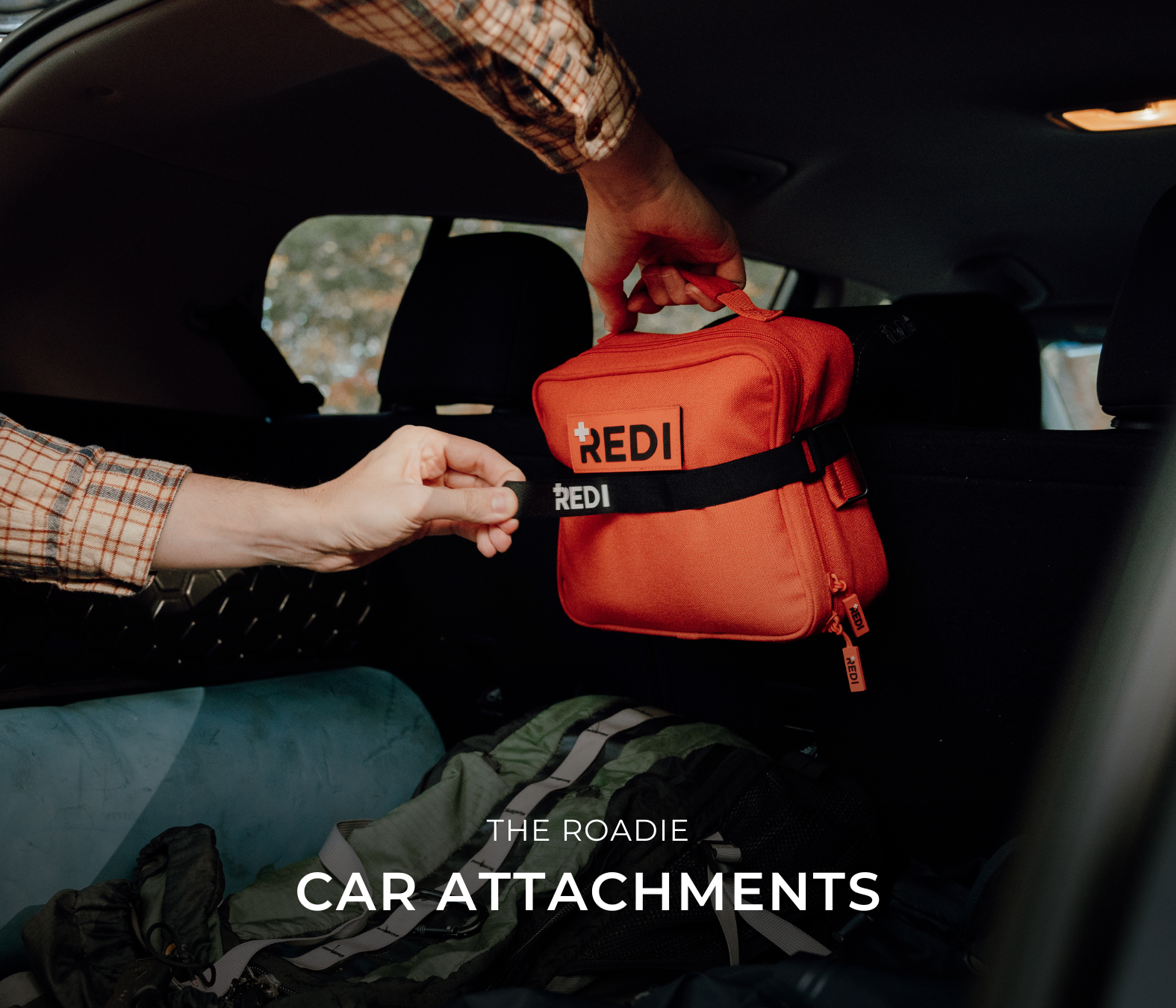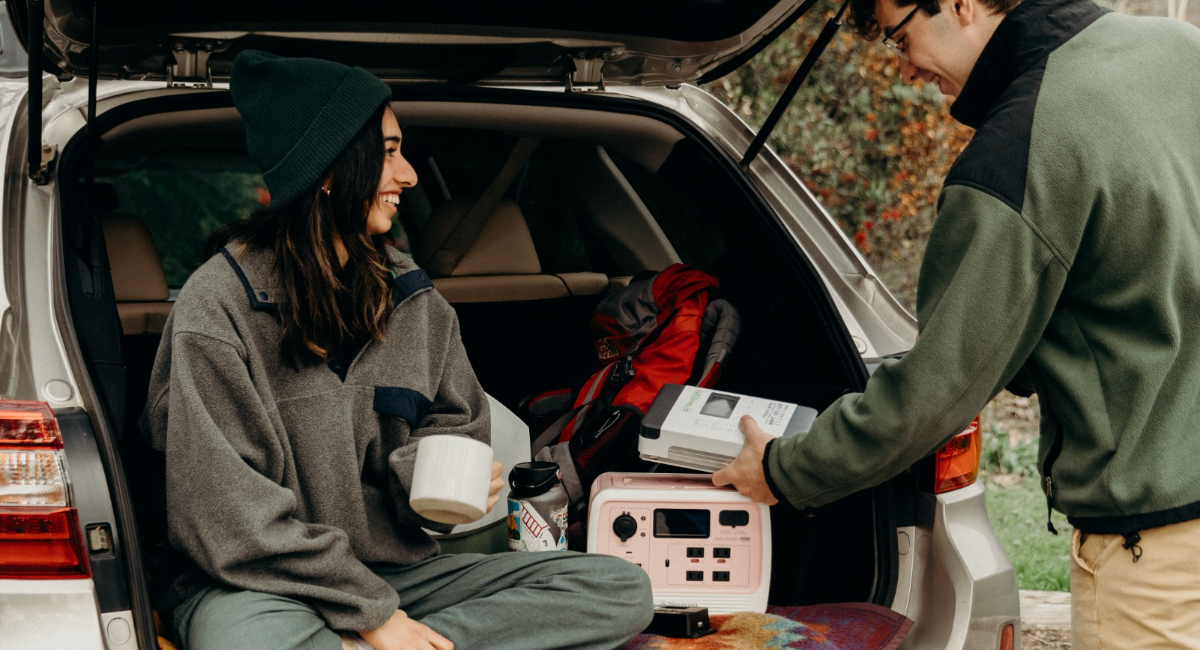Medical kits contain essential first aid supplies that can be used to treat minor injuries or illnesses, as well as more serious medical issues. Whether you're a camper, a hiker, or simply someone who is always on the go, having a medical kit readily available can help you deal with unexpected medical situations quickly and effectively.
Think about how you feel when you forget your phone charger at home or run out of gas on the highway. It's a frustrating and stressful experience that could have been avoided with a little bit of planning. The same goes for being unprepared in emergency situations.
In an emergency situation, time is of the essence. You do not have the luxury of time or, depending on where you are, the ability to go out and get the needed supplies. Medical kits are not just for medical emergencies either.
Take the story of my neighbor, Anna, for example. Anna was having a picnic in the park with her family when her daughter started feeling sick. Before she knew it, her daughter had a high fever and her temperature was quickly rising. Luckily, Anna had a small kit in her car. Inside she found a thermometer, an anti-inflammatory, and ibuprofen, all of the fever rescue essentials. She was able to get her daughter's fever under control and they were able to enjoy the rest of their picnic. So why make things harder for yourself and others? Keeping a med kit on hand at home, in the car, and workplace is essential for both minor and major hiccups that occur in our day-to-day lives.
Read: What kind of emergency kit does car owner need to have?
What is a Medical Kit?
A medical kit is a collection of essential supplies and tools used for administering first aid and basic medical care in emergency situations.
Medical kits come in all shapes and sizes, designed for a variety of lifestyles. Whether you're an avid camper, hiker, frequent traveler, or stay at home parent, there's a kit that can provide you with the necessary supplies for emergency situations.
Read: What is a Portable Medical Kit? Why is it Important to Have One?
Why a Medical Kit Is Important: 10 Reasons
#1. It saves time and lives.
#2. It helps you and others.
#3. You can use it for more than just first aid
#4. It saves money
#5. It reduces stress, shock, and gives you a peace of mind
Having the right supplies and knowing how to use them can help reduce stress and shock, as well as provide you with a sense of security and assurance that you are able to take action in an emergency.
#6. It can help you stay organized
#7. It's better to be safe than sorry
#8. Its empowering
#9. It can teach you life-saving skills
#10. It can be used in a variety of different situations and environments
Whether you are hiking, traveling, running errands, or just out to dinner, a medical kit can be invaluable in providing supplies to treat a basic injury and illness.
Common Types of Medical Kits
Med kits vary depending on the situation they are designed for. Not all situations present the same threats and risks, which is why having a specific kit for your lifestyle can make all the difference. Lets walk through a few of the different types:
#1. First Aid Kits: the most common and standard safety kit, designed to treat minor ailments.
Different components of first aid kit include adhesive bandages, gauze, antibiotic ointment, burn gel, and other items.
#2. Emergency Medical kits: more supplies to address more serious injuries.
Emergency kits contain more advanced medical equipment such as a blood pressure cuff, or an airway kit or suture kit, designed specifically for use in life-threatening situations.
#3. Trauma Kits: specialized kits for use in life-threatening situations where bleeding control supplies are critical.
In a trauma kit you will find more advanced medical items such as chest seals, emergency bandages, trauma shears, tourniquets, and hemostatic gauze.
In a life-threatening situation, seconds can make the difference between life and death.
Trauma kits can help to provide medical care quickly before first responders arrive on the scene, where a person can then be transferred to a hospital where medical professionals take over.
#4. Wilderness/Adventure Medical Kits: tailored to outdoor activities, where access to medical facilities is limited or nonexistent.
Adventure kits are designed for use in remote and wilderness areas and are carried among people hiking or camping. Special items you might see in an adventure kit include snakebite kits, insect repellent, and a high decimal whistle.
#5. Medical Survival Kits: collection of essential, survival and first aid items needed in an emergency or disaster situation.
In the event of a natural disaster, national emergency, or power outage, help and resources may not be readily available. Survival kits contain basic items such as flashlights, blankets, batteries, as well as supplies to treat both minor and major injuries.
Pre-made or home-made Medical kit?
When it comes to having the right medical supplies on hand, the debate often revolves around whether to buy a pre-made med kit or make one yourself. Both options have their pros and cons and it's important to weigh your options carefully before making a decision. If you are debating on making your own or purchasing one, ask yourself this:
Do I know the typical emergencies that could happen, the types of medical problems that could occur as a result, the necessary tools and resources needed, and how to properly use and apply such tools?
One of the benefits of buying a pre-made med kit is that you can be sure that it contains all the necessary items you need for first aid.
The items in our Roadie Kit, for example, are hand-picked by experts in health, safety, and survival. Another thing to consider is the exterior of the kit? Is it a small hand-held pack, a backpack, or a hard shell case?
The more comprehensive the kit is, the heavier and bulkier it may be. If the med kit is intended to be kept in the car, make sure it is easy to carry, durable, and well organized. Ultimately, the decision between buying a pre-made med kit or making your own comes down to personal preference. Consider what items you will need and what type of environment you will be using the kit in before making a decision.
Items to Add to Your Medical Kit
Even a complete kit may not have the specific resources that you or your family members need. If someone in your family is diabetic or has specific allergies or conditions, make sure to include their necessary medications, such as an epi pen and others.








